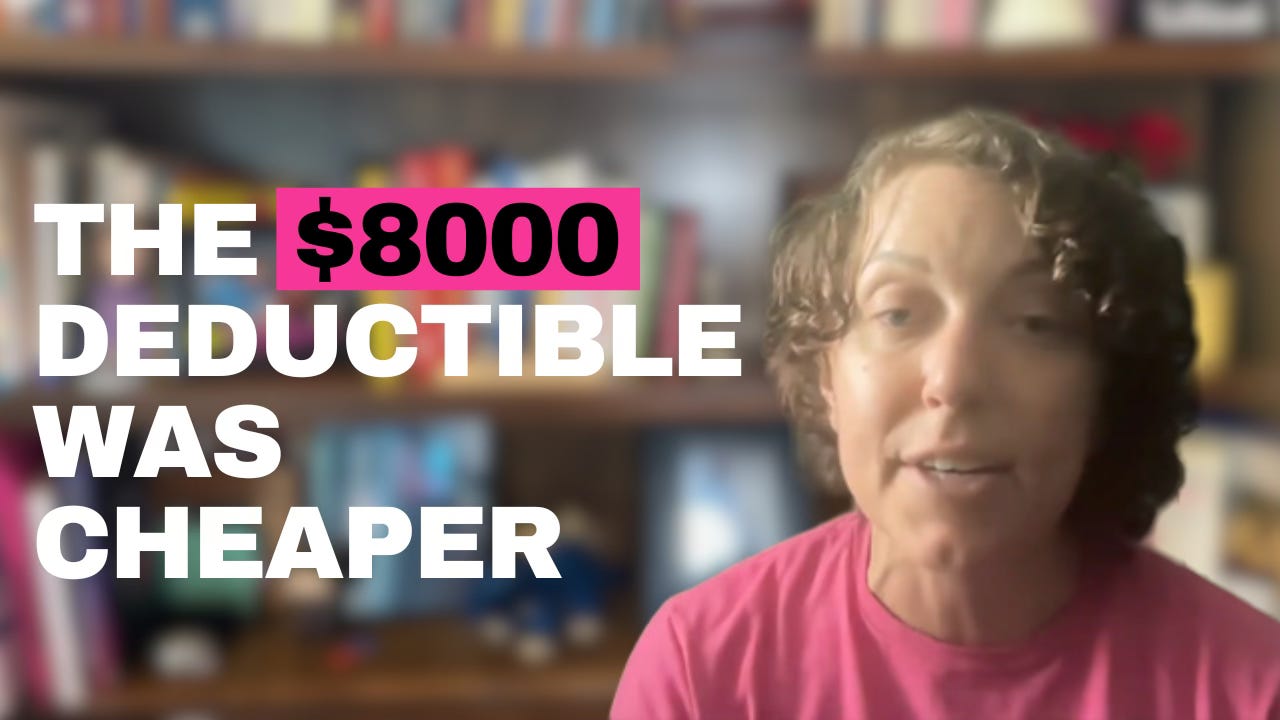The $8000 Lesson (Transcript)
Why your worst insurance decision might save your life or your budget
Joelle Kaufman: Welcome to Kicking Cancer's Ass, the podcast that's reframing the cancer narrative from fear to power. I'm your host, Joelle Kaufman, 43 year intergenerational breast cancer survivor and author of Crushing the Cancer Curve Ball. Today I'm joined by one of the women in my book, Jessica Gravel, and her story's just amazing. She's a marathoner who discovered that navigating the healthcare bureaucracy was actually the hardest race of all. Jessica lost 90 pounds, transformed her body through running, was living her very best life when cancer threw her the curve ball, not just in diagnosis, but in the healthcare system that was designed to slow her down when she needed to run. Jessica, thank you so much for joining me and for being part of my book.
Jessica: Thank you. It's great to be here.

Joelle Kaufman: Awesome. let's jump into the healthcare maze. So when we talked, you said at the time you thought there was a problem, you had to pay a massive amount out of pocket just to have your concern taken seriously, and then fight with scheduling nightmares and misinformation. Can you walk us through the absurd obstacles when you realized the system was working against you?
Jessica: Sure, yeah. I, um, at the time, um, was getting healthy. So when my employer offered insurance, I was opting for, you know, the cheapest deductible for month to month because I didn't plan on using that policy at all. I was out, you know, living the marathon life or just doing other stuff. And, um, runners often, uh, ignore different body ments.
And continue to like keep pushing. So I was like, even if I did get hurt, not really planning on using the insurance. So it was the lowest deductible, which then, or I'm sorry, the lowest monthly premium, which then I find out, it ends up having like actually no deductible and you have to pay your out of pocket.
Um, max. So all that's all it is, is it's, I believe it was like $8,000, maybe it was six or $8,000, um, that year. And so anything that I went to go do, I had to pay a hundred percent for a hundred percent of a biopsy. A hundred percent. You know. So the biopsy was actually what? By the time I got to the biopsy, I had met my out-of-pocket mat max from everything.
Um, so I really, my first, um, cancer appointment, I didn't pay a penny towards anybody within the oncologist or anything within that. So like, while I thought that that first year was really, really hard and it was absurd that I am shelling out all this money. Once it actually was cancer, I ended up having the best insurance policy essentially for my situation because I, I didn't have to pay, um, anything I.


